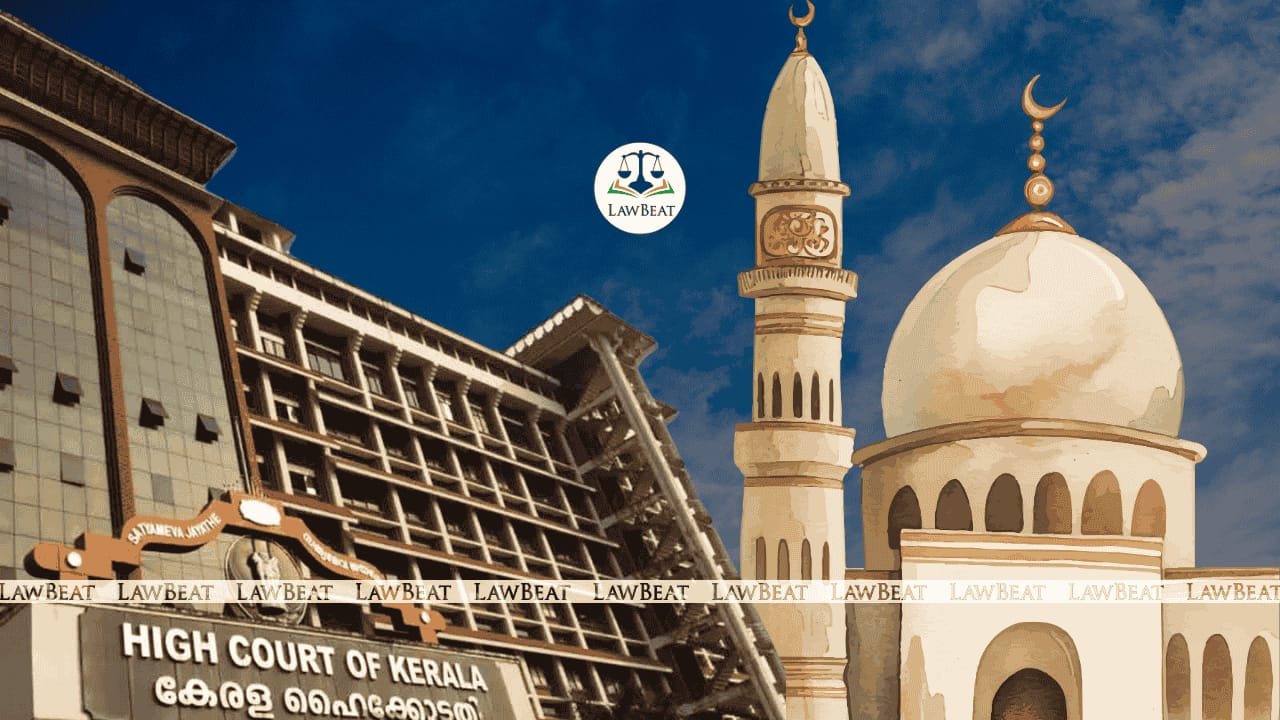Establishment of Religious Place Cannot be Curtailed Merely Due to Opposition from Other Religious Groups : Kerala HC

The court emphasised that the State must maintain a careful balance between protecting religious freedom and upholding secularism when issuing guidelines
The Kerala High Court held that the right of a religious community to establish a place of worship should not be curtailed solely based on objections from other communities that predict potential disturbances. The court quashed an order by the District Collector of Kozhikode that refused a No Objection Certificate (NOC) for a muslim prayer hall in Kadalundi village.
Justice Mohammed Nias C.P, presiding over the court, was hearing a plea filed by K.T. Mujeeb who owned a plot in Kadalundi Village. The same was used as a prayer hall since 2004. The petitioner claimed no Juma prayers or use of loudspeakers occurred, and the hall was solely for community prayers. In 2014, Mujeeb applied for a permit to renovate the roof, which was granted by the Kadalundi Grama Panchayat. However, in 2015, the Panchayat issued a stop-work notice, citing unauthorized construction. The petitioner denied these allegations and facing potential demolition, obtained an interim stay from the High Court in 2015. Complaints led to a 2016 RDO order halting the prayer hall’s use due to alleged communal issues. A conditional interim order later permitted prayers without loudspeakers or Juma services. In 2020, the District Collector refused the NOC, citing opposition and potential law-and-order problems, leading to the present writ petition.
The petitioner argued that the Collector’s refusal was arbitrary and infringed on the petitioner’s rights under Articles 25 and 26 of the Constitution. It was pointed out the lack of conflicts in the area and the absence of police intervention since 2004.
On the other hand, the respondents, contended that the petitioners have been using the premises and have unlawfully converted a residential building into a place of worship. Concerns over unauthorized gatherings during the pandemic were also raised. The court was also informed that a report submitted by District Police Chief highlighted the presence four other mosques existed within a one-kilometre radius and the construction of another mosque was opposed by Muslims as well as Hindus residing in the locality.
The court, upon examination of rival contentions and perusal of records, emphasised that the Collector’s decision was based on speculative fears rather than concrete evidence. “Merely because one community opposes the setting up of a religious place by another community, it cannot be assumed that there will be disharmony or breach of peace,” the court noted.
The court observed : “In a democratic nation where citizens possess the fundamental right to practice and profess their faith, the establishment of a religious place by any community should not be curtailed merely due to opposition from other groups,” emphasising that the principles outlined in the judgment of Fr. Geevarghese v. District Collector [2014] were significantly overlooked by the administration.
The court expressed that the State must maintain a careful balance between protecting religious freedom and upholding secularism when issuing guidelines. It further rejected the argument that another mosque should not be allowed to set up in the locality despite the presence of four others stating that “the mere proximity of other mosques does not inherently justify the rejection of an application to set up another.”
The court conclusively ruled, “Objections raised by a handful of individuals from other faiths cannot serve as a valid basis to restrict the rights guaranteed under Articles 25 and 26 of the Constitution,” underscoring that distinction between public order and law and order was not properly recognised by the collector while refusing to grant NOC.
In furtherance, the court directed the Collector to reconsider the petitioner’s application in line with the observations and guidelines.
Cause Title: KT Mujeeb v State of Kerala [WP(C) NO. 13544 OF 2020]
Appearances : Advocates S.Sreekumar (SR.), P.Martin Jose, P. Prijith, Thomas P.Kuruvilla, R.Githesh, Ajay Ben Jose, Manjunath Menon, Harikrishnan S. (For the petitioner) ; For the Respondents - State of Kerala, By its Secretary, (LSGD), Government Secretariat, Thiruvananthapuram and Advocates Devishri R., Government Pleader- R1& R2 Vinod Singh Cheriyan -R3 P.V.Anoop, T.M.Khalid -R3 K.P.Susmitha - R3 Phijo Pradeesh Philip - R4 K.V.Sreeraj -R4 T.Sethumadhavan (SR.) - ADDL.R6 M.P.Priyeshkumar- Addl.R6
